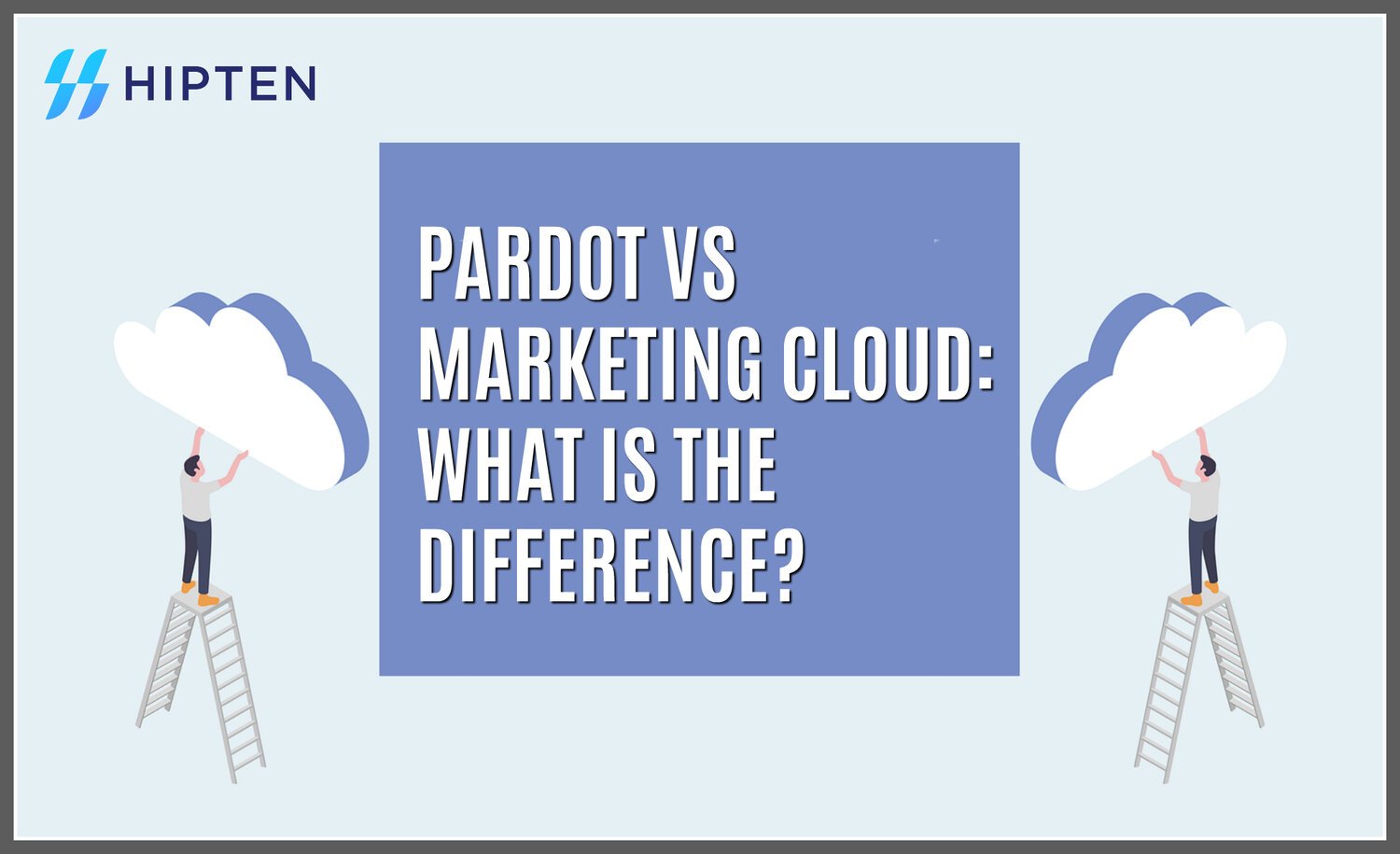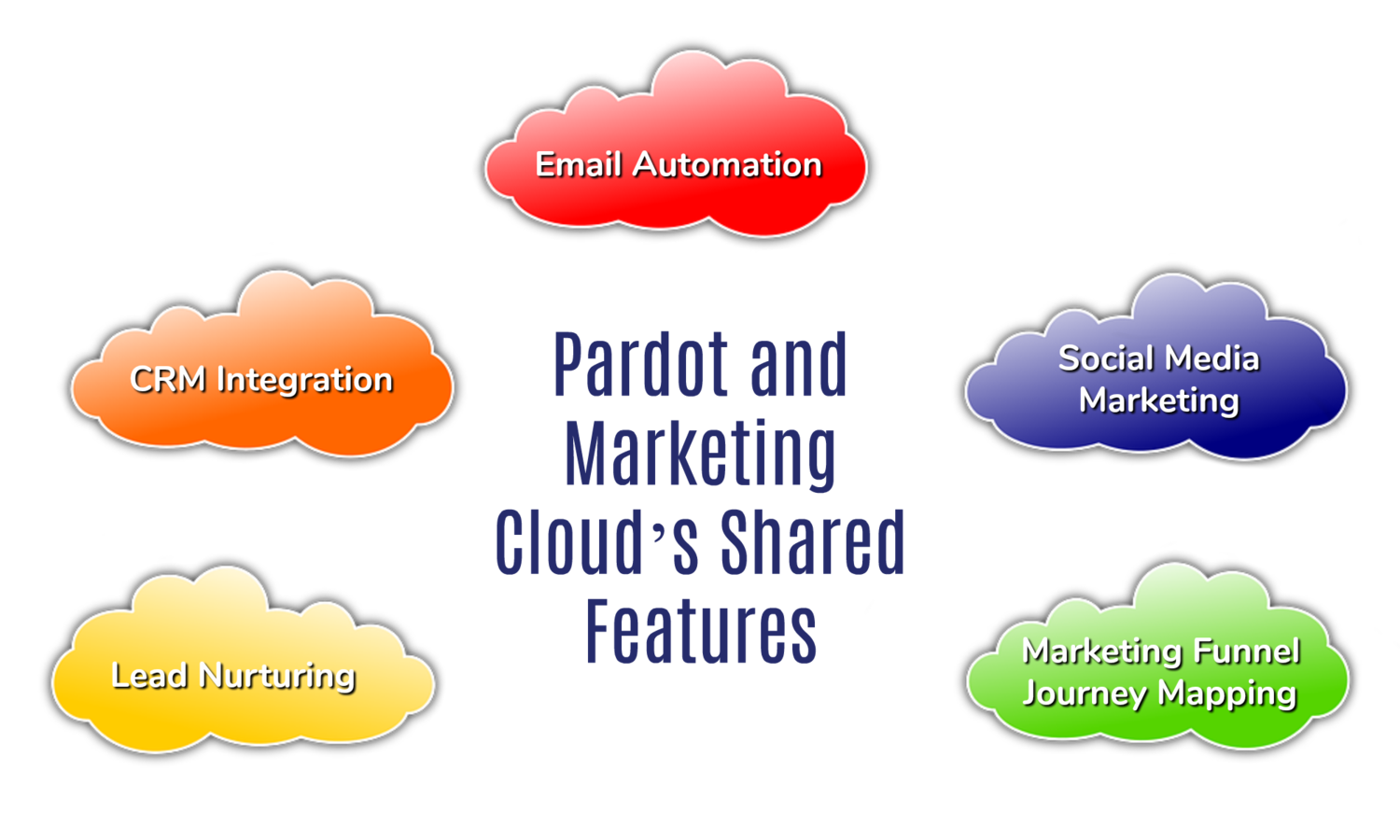Pardot vs. Marketing Cloud - What’s the difference?
Sales and marketing teams have to collaborate to create an effective lead to sale conversion strategy but one of the biggest obstacles is the technology to support this effort. There is a lot of emphasis on the acquisition stages of the marketing funnel however, retention needs to be focused upon, as well.
Having a dynamic email, content, and marketing platform can make a big difference in the overall ROI of any company.
For insurance companies, Salesforce has been the choice automation platform for sales, marketing, and customer relations.
Two highly effective marketing automation offerings inside of Salesforce are Pardot and Marketing Cloud. This article will take a more in-depth look into both of these features and compare them.
What is Pardot?
Pardot is a welcomed solution to marketing automation. It has been designed to help companies worldwide connect with their customers, capture more leads, and drive sales and ROI while also helping companies improve their retention rates.
What does Pardot do?
Pardot allows for marketing automation within Salesforce. It is best known and praised for its email automation, targeted campaign tools, and lead management capabilities.
It provides smart sales and marketing solutions for B2B (business to business) relationships.
What Can Pardot Do For Your Business?
1. Dynamic Email Campaign Management
The insurance industry is buzzing about Pardot’s marketing automation capabilities. With this effective marketing tool, you can schedule personalized emails and send them to hundreds if not thousands of potential clients. You can create reusable templates and add personal touchpoints that appeal to all of your prospects.
Here is a summary of the many features inside of Pardot’s Email Campaign Management Platform.
Engagement Studio
Nurturing engine used for automation building, similar to “drip” email functionality.
One to One Emails
Super beneficial for salespeople, allowing them to utilize branded marketing templates to send targeted, personalized messages to their customers. It allows a 1 to 1 email communication funnel as opposed to mass emailing.
List emails
This feature works well for email blasts to segmented lists.
Autoresponders
Just as the title describes, this feature allows you to create automations inside of your email database. It acts as a follow-up once the target audience completes a specific action.
2. Dynamic Content Creation
This feature allows you to set a criterion that determines which of your leads (or prospects) get customized content unique to them. This means your prospects can receive different copy and images based on their behavior or segmentation. The personalization within the content allows for an improvement to a company’s messaging.
3. Improve Social Media Management
Because of the newest additions to Pardot’s Social Posting feature, you can now add images to your posts that automatically render to streamline across all of your social platforms.
Here are just some of the many offerings inside Pardot’s Social Posting Feature:
UI Improvement
You can upload images inside the tool itself which saves you time from having to upload into the content library first.
Advanced Tracking
With Pardot’s Advanced Tracking abilities, you are now able to see if a message failed to post allowing you the opportunity to go back and re-post to ensure the message is received.
4. Lead Scoring
A favorite among Pardot users, the lead scoring feature helps you align your sales team with engaged prospects responding to marketing efforts. The lead scoring models offered in Pardot can help your sales team sift through a large database to pull only warm leads or provide an alert system identifying when a lead becomes ready to convert to a sale.
Who is Pardot for?
Pardot is best utilized in a Business to Business scenario.
Pardot Vs Marketing Cloud
Although often compared, Salesforce Marketing Cloud is different in it’s application but shares many of the same features as Pardot. Basically both Pardot and Marketing Cloud are automation and digital analytics platforms.
What do Pardot and Marketing Cloud Have in Common?
Here is a summary of Pardot and Marketing Cloud’s shared features:
Who is Salesforce Marketing Cloud For?
Salesforce Marketing Cloud is made up of several modules and each module has a designated area of focus within the digital marketing platform.
Salesforce Marketing Cloud benefits primarily Business to Consumer (B2C) environments. If you’re a business or agency with smaller value sales within a large database, Salesforce Marketing Cloud is probably a better fit for you than Pardot.
Benefits of Salesforce Marketing Cloud
Although Pardot is known for its email marketing capabilities, the Marketing Cloud platform is known for its other more advanced offerings like Mobile and Advertising Studio.
Salesforce Marketing Cloud is also a really great platform for 1:1 customer relationships and journeys. It provides mixed channels for more effective 1 to 1 communication. When it comes to social media marketing, Marketing Cloud provides options that include all of the features within Pardot but also includes SMS campaign capabilities.
What next?
If you’d like to discuss Pardot or Marketing Cloud with one of our representatives to see if either platform is a good fit for you feel free to contact us here.
We also have a great Pardot resource center you might want to check out as well. Visit it here.




